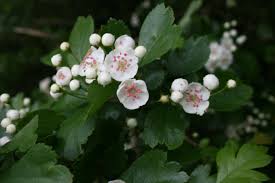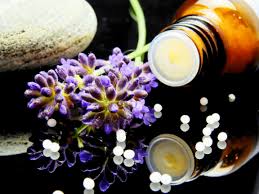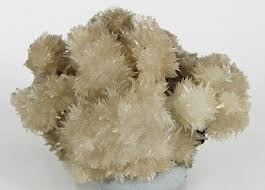
By Crawford R. Green, M.D., Troy, N. Y.
The introduction of Cratagus oxyacantha, the Hawthorn berry, into medicine as a heart remedy is attributed to a Dr. Green, of Enhis, Ireland. From time to time this remedy has attained to some sporadic vogue, but is has never received that general recognition which it so richly deserves. Indeed, Cratagus has given such uniformly successful results where it has been employed in heart conditions that, although a comparatively new remedy, the neglect it has received, both in our literature and in our practice, is quite remarkable.
Unfortunately, this wonderful remedy has not been proved, so that we know little of its truly homoeopathic action. The clinical observation of those who have employed it, however, is sufficient to establish that it is no exaggeration to say that it is one of the greatest heart remedies which we at present command.
The action of Cratagus is so broad that there are few heart conditions it does not include, and none that contraindicate it. In fact, it may be regarded as approaching a specific for cardiac conditions in general. It acts both as a powerful heart tonic and as a stimulant. It profoundly affects the circulation, strengthening the weak pulse and regulating its rhythm, correcting a like tachycardia, bradycardia, or simple arrhythmia, apparently regardless of cause.
Its action in valvular heart conditions is truly remarkable, whether the mitral or aortic area be affected. It seems to have positive power to dissolve valvular growths of calcareous or vegetative origin. It is of value, too, in heart conditions caused by, or associated with anaemia.
Cratagus has saved many lives in cases of organic disease with failing compensation. In the pronounced oedema of such conditions, it manifests a diuretic action in every respect rivaling that of Digitalis, Apocynum and Strophanthus. Some observers have found the extreme dyspnoea frequently associated with these conditions to be a leading indication for its employment. Unquestionably, it has a powerful action upon the pneumogastric nerve, correcting its inhibitory function when heart failure is imminent as a result of over-stimulation.
In heart pains of various kinds. Where we so frequently think of Cactus, Spigelia, Kalmia, and their allies, Cratagus often given relief when other remedies fail. In angina pectoris it is of indubitable value. Jennings has reported its use in a series of forty cases of true angina with remarkably good results.
As a heart stimulant and sustainer in the infectious fevers, Cratagus is of the greatest service. In diphtheria, typhoid, pneumonia and all other toxaemic conditions, it may be confidently prescribed as a routine measure upon the least sign of a flagging heart. In such conditions, it gives results far safer and far more effective than alcohol, Digitalis or Strychnia. When employed in this manner, I have frequently seen lives saved with it when I am confident that any other form of stimulation would have failed. In two cases of typhoid fever I have seen heart murmurs disappear within twenty-four hours after its administration, reappear within a few hours when the remedy was experimentally discontinued, and again disappear upon its readministration.
In fatty degeneration of the heart, where, above all, we must guard against the dangers of over-stimulation, Cratagus is an absolutely safe remedy. For this reason, pulmonary tuberculosis, so generally associated with fatty heart, presents a field of exceptional utility. In the tubercular wards, it has been shown that Cratagus will often tide a patient over critical periods when Adrenalin is of too transient action, and Strychnia, always dangerous in pulmonary tuberculosis, would expand the heart and as surely kill the patient.
In shock, in collapse, in syncope of cardiac origin, Cratagus gives excellent results when administered alone or in conjunction with any other stimulant that seems immediately indicated.
A summary of the symptoms for which Cratagus has been administered would be an epitome of the symptomatology of heart disease in general. Feeble and irregular pulse; valvular murmurs; oedema; dyspnoea; pallor; cutaneous chilliness; blueness of fingers and toes; circulatory disturbances; heart inflammations; heart pain – all these symptoms and many more are attributed to it by various observers.
The dosage of Cratagus in usually given as five to fifteen drops of the mother tincture, repeated every six hours. As the remedy has no cumulative action, it may be repeated at more frequent intervals in severe cases with perfect impunity. As a heart tonic and sustaner the administration of seven to ten drops, three times a day to adults, or two to four drops to children, gives excellent results. Clarke recommends giving it during or immediately after a meal, as otherwise it may cause nausea. I have, however, repeatedly given it upon an empty stomach, and in only one instance have observed it to cause gastric disturbance. As an immediate stimulant in extreme cases of collapse, it may be administered hypodermically in ten drops of the tincture. The preparation used is of importance, for the tincture should be prepared from the ripe hawthorn berry and not from the whole plant. – The Chironian.




